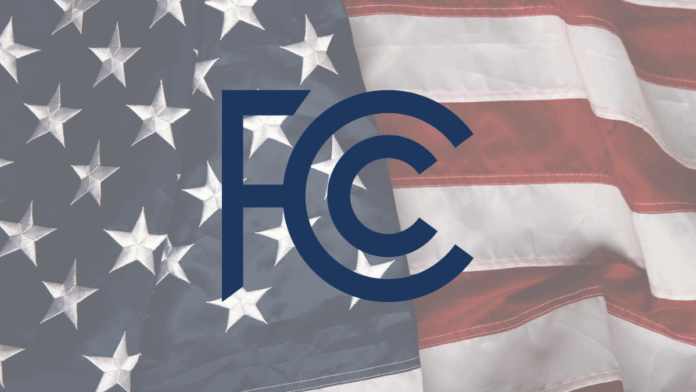Senates confirms Trump’s first FCC nominee, Olivia Trusty
The U.S. Senate has confirmed President Donald Trump’s first nominee to the Federal Communications Commission, bringing the independent regulatory agency back to a quorum by filling a third seat.
Olivia Trusty, a Republican, has been confirmed for her first, five-year term as an FCC Commissioner. Trusty joins current Chairman Brendan Carr, also a Republican, and Anna Gomez, the sole Democrat on the Commission.
Trusty received broad congratulations from her fellow FCC members and industry groups. Carr said that she “brings years of valuable experience to the agency, including her public service on Capitol Hill and time in the private sector. I am confident that her deep expertise and knowledge will enable her to hit the ground running, and she will be an exceptionally effective FCC Commissioner. I look forward to welcoming Olivia to the Commission as a colleague and advancing an agenda that will deliver great results for the American people.”
“I have known Olivia for years and have been very impressed with her strong background in communications policy and deep understanding of the technical aspects of this job, which will be a great asset to this agency,” said Gomez.
USTelecom President and CEO Jonathan Spalter commented that Trusty’s confirmation was “a win for our nation’s broadband future. Her principled leadership, deep policy expertise, and commitment to public service will serve the FCC and the country well. Congratulations Olivia, we are ready to work with you to advance smart, effective connectivity policies.”
CTIA President and CEO Ajit Pai, a former FCC commissioner and chairman, issued a congratulatory statement as well, saying that Trusty “brings to the role a deep understanding of telecommunications issues, stemming from her decades of public service, including her invaluable work on Capitol Hill. Her time spent on both the Senate Commerce and Armed Services Committees will be a tremendous asset to the FCC as the Commission tackles the complex challenges and immense opportunities facing our nation’s wireless future.”
There are still two remaining seats to fill on the FCC, due to recent departures of Commissioners. Former Commissioner Geoffrey Starks, a Democrat, had announced his resignation earlier this spring and officially stepped down as of June 6. In the case of Nathan Simington, a Republican, his term expired in June 2024. However, under FCC rules, he could stay on until either his replacement was confirmed or until the end of the Congressional session on January 3, 2026. Instead, he also left the agency as of June 6.
President Trump has so far not indicated who he might nominate for those positions. The FCC is a bipartisan agency in which a maximum of three members may be of the same party.
The Senate approved Trusty’s nomination by a 53-45 vote, mostly along party lines.
Senator Maria Cantwell (D-Wash.), who is the ranking member of the Senate Committee on Commerce, Science and Transportation, issued a statement saying that while she respects Trusty’s background, she had hoped that Trusty’s nomination would be paired with a Democrat to fill the open seat left by Starks. “Moreover, given President Trump’s alarming record of seeking to illegally fire Democrats on independent commissions like the FCC, I remain seriously concerned that this Administration will try to illegally terminate Democratic Commissioner Anna Gomez, refuse to nominate any Democratic replacements, and then operate the Commission on a strictly partisan basis,” Cantwell said.
Cantwell also cited concerns about spectrum issues as making her reluctant to vote in favor of the Republican nominee to the FCC, calling the current outlines for spectrum pipeline that are before the House and Senate a “reckless approach to spectrum management [that] threatens essential systems that protect American lives.”

